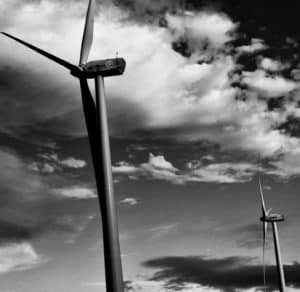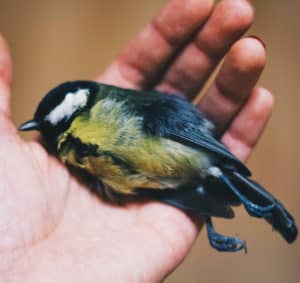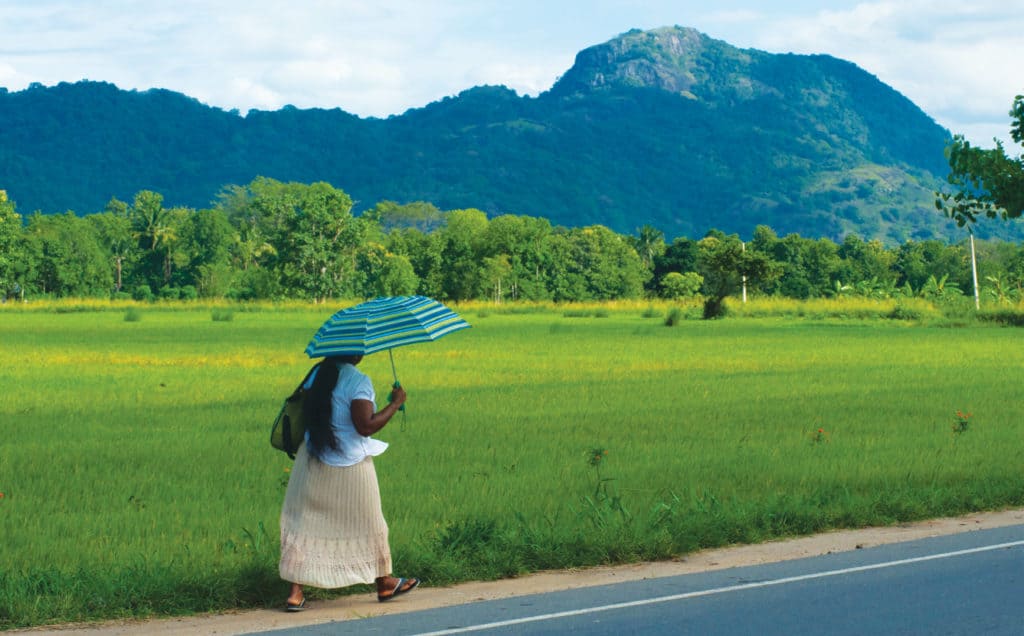According to the U.S. government report last November 2018, the country’s GDP (gross domestic product: the total value of goods produced and services provided in a country in a year) will shrink by 10% by the end of the century. This is due to the impact of global warming partially created by increased energy usage.

Just ordinary, well-known appeals to save energy have not had their desired effect, as even if most people tend to listen, they do not change their habits. We need different methods.
Here’s one from the January 28 issue of Harvard Business Review about how sustainable energy usage can be implemented in today’s world. Researchers from Harvard, Columbia, Duke Universities in the fields of behavioral science, economics and business partnered with a utility provider Opower that produces a home energy report (HER) informing customers how much energy they use as compared to their neighbors.
The HER rates consumers according to how much energy they are consuming, how much energy efficient neighbors consume and how much all neighbors consume. It reveals how others similar to them behave, then challenges them to do better, since no one wants to appear to care less about the environment than their neighbors.
The researchers studied the HER results of a random survey of over 16 million households in 27 states, asking whether they believe energy conservation helps the environment, and whether they think the majority of their neighbors believe the same.
The results indicated that receiving information about their neighbors’ energy consumption has a stronger influence on their own energy use. What we observe and think about why our neighbors behave the way they do has as much impact on our behavior as our own attitudes and beliefs.
So the take-away they suggest is that changing human behavior requires acknowledging that we are social beings. We care about what our neighbors think about the environment, and about us, not only what they do.
Green investing
 As the public becomes more aware of the environmental impact of various industries such as companies that build solar panels, wind turbines, hybrid cars, hydroelectricity and other renewable energy sectors, the interest in socially responsible investing has come to the forefront among popular culture, as well as the financial world. Green investing is gaining more and more attention, particularly among millennials who today hold greater influence in the economic and social sphere of society. The awareness and concern for future generations is a driving force.
As the public becomes more aware of the environmental impact of various industries such as companies that build solar panels, wind turbines, hybrid cars, hydroelectricity and other renewable energy sectors, the interest in socially responsible investing has come to the forefront among popular culture, as well as the financial world. Green investing is gaining more and more attention, particularly among millennials who today hold greater influence in the economic and social sphere of society. The awareness and concern for future generations is a driving force.
Another recent survey of 1,000 employees in large U.S. companies revealed that three-quarters of millennial workers would be willing to accept a lower salary to work for a company that is environmentally responsible — more than 10% would go as far as taking $5,000–$10,000 less. Of those interviewed, more than 70% were more likely to choose a company with a strong environmental agenda.
The Global Climate Prosperity Scoreboard initiated by Ethical Markets Media and the Climate Prosperity Alliance monitors private investments in green companies. They found that over $1.248 trillion has been invested in solar, wind, geothermal, hydro and other green sectors since 2007 in North America, China, India and Brazil, as well as other developing countries.
Top priorities
After years of interviewing people from all walks of life, University of Michigan professor Susan Santone has identified ecological issues that most people are interested in:
• Clean water and air
• Healthy, affordable foods appropriate to cultures and communities
• Healthcare
• Supportive and loving relationships: family, friends, neighbors
• Educational opportunities: schools, books, Internet, informal learning
• Economic opportunities: jobs, access to financing
• Transportation, energy, infrastructure
• Fair governance structures
• Recreation and self-expression: hobbies, art, music, sports

In her blog from October 25, Santone considers the efficacy of integrating ecological economic concepts with other disciplines, and proposes that there is an interdependence that can profit from greater accessibility and understanding among seemingly unrelated areas of thought. For instance, she points out that when we think of climate change, it fits well in the fields of science; when we look at consumption, it is more related to the field of social sciences; when we consider production, it might be in the field of business economics.
So, if we are interested in engaging students, or others, in meaningful learning that contributes to sustainability, she suggests that we have to tell a story that includes a character, plot and setting that provides a relatable context. It’s in how the story is woven together, taking into consideration various aspects of what is important in one’s life, that we begin to see the interconnectedness of the elements that support a thriving community and a person’s wellbeing.
Where are we headed as a community and as a world? Who
is responsible for the provision
of healthy foods, safe housing, education? How do we organize society in ways that preserve the basis for wellbeing?
More vs. Better
Going a step further, Santone points out that there can be competing stories: the story of more vs. the story of better. These, she says, can open the door to a deeper understanding of transdisciplinary thinking.
On the one hand, in the story of more, one is driven by self-interest and pursuit of personal gain measured in quantitative terms of profits, economic growth, GDP. The environment is not considered a value unless it is useful for production or contributes to property values.
On the other hand, the story of better is grounded in community and interdependence, concepts that redefine who and what counts as a character including people, other species, ecosystems … It illustrates how social systems operate within ecological ones and encompasses all disciplines such as sociology, psychology, biology.
Even though what individuals do in the care of the environment is an important response to ecological concerns, there is a broader scale response that is called for in terms of policy decision making on a governmental level, private corporate business level and the local community. The challenge is to start conversations that will lead to a sustainable environment that will benefit all aspects of life.
We are living in an era of a burgeoning digital world with technological advances that
can provide the answers to the challenges before us, according to Doug Stayman, associate dean, in the newly opened Cornell Tech Bloomberg Center on Roosevelt Island in New York.
“One of the greatest problems we face today is climate change, and digital technology can help us solve it,” he says.

Some points of departure could be:
• How can a system be designed to capture stormwater and natural springs for use and reuse, particularly in areas prone to drought through an ever-advancing modern technology?
• What needs to be put in place to reduce the use of toxic materials that pollute water, air and soil while efforts are implemented to rid natural resources of pollutants?
• What guidelines need to be developed that ensure species diversity, and how to implement them?
• How can healthcare systems be rewarded for promoting health in an era that has become dependent on expensive tests and procedures to treat illness?
• How can energy usage be managed more efficiently by individuals as well as larger corporations?
Making the shift from climate change in general and certain titles (that turn some people off immediately to different topics) that affect each one of us could be a way to communicate and discern more in depth the challenges we will have to face.
Emilie Christy
From Living City Magazine, USA, April 2019




